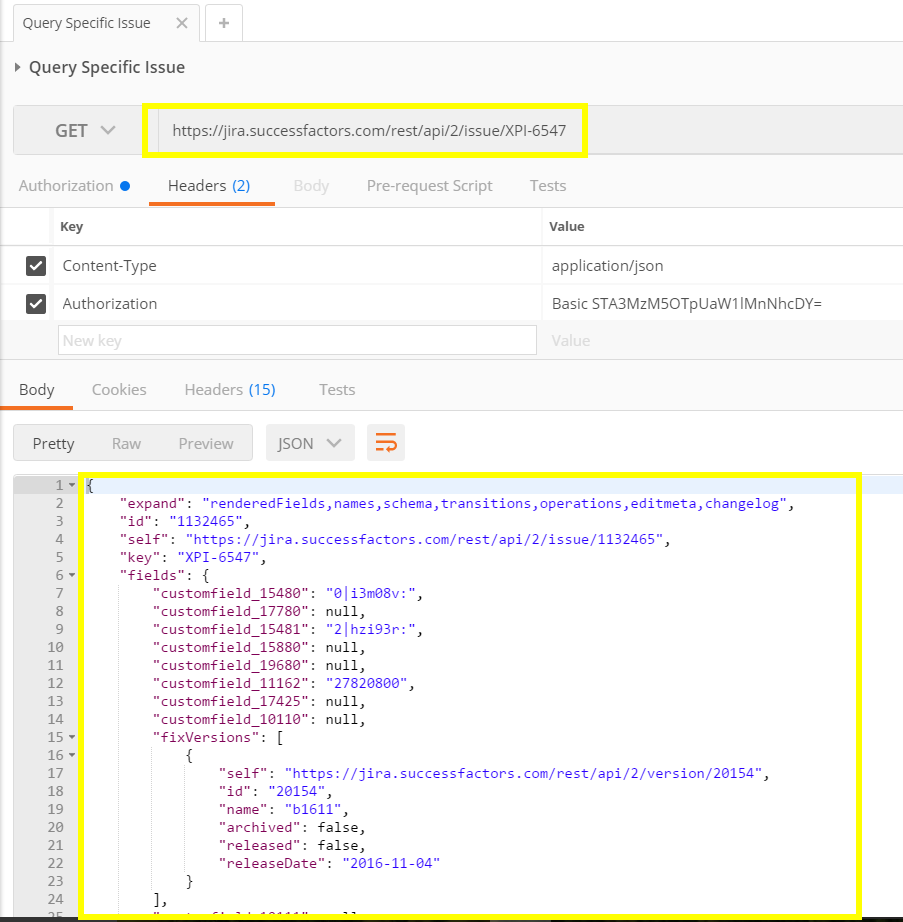JIRA API Introduction
Agenda
-
Basic Introduction
-
Common Resources
-
Practicing with Postman
-
Practicing in JS
Basic Introduction
Authentication
- OAuth - web/java/save,no xss, no same original domain
- Basic HTTP - Postman, simple
- Cookie Based - Extension/js/quick

curl -D- -X GET -H "Authorization: Basic ZnJlZDpmcmVk" -H "Content-Type: application/json" "https://example.com:8081/rest/api/2/issue/QA-31"URI Structure
- Provide access to resouces via URI path
- HTTP Request
- GET
- PUT
- POST
- DELETE
- JSON

Expansion
https://jira.atlassian.com/rest/api/latest/issue/JRA-9?expand=names,renderedFields{
"expand": "widgets",
"self": "http://www.example.com/jira/rest/api/resource/KEY-1",
"widgets": {
"widgets": [],
"size": 5
}
}Pagination
{
"startAt" : 0,
"maxResults" : 10,
"total": 200,
"values": [
{ /* result 0 */ },
{ /* result 1 */ },
{ /* result 2 */ }
]
}JIRA uses pagination to limit the response size for resources that return a potentially large collection of items. A request to a paged API will result in a values array wrapped in a JSON object with some paging metadata, for example:
Ordering
?orderBy=name
//Order by "name" ascending
?orderBy=+name
//Order by "name" ascending
?orderBy=-name
//Order by "name" descendinCommon Resources
api/2/filter
api/2/issue
Adv of API
Fast
Recurring
Massive
Integration
Practicing with Postman
Practicing with JS
References
Thank you and Questions?
JIRA API Introduction
By Shawn Shao
JIRA API Introduction
- 593





